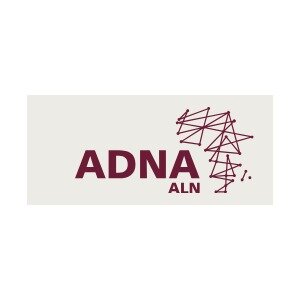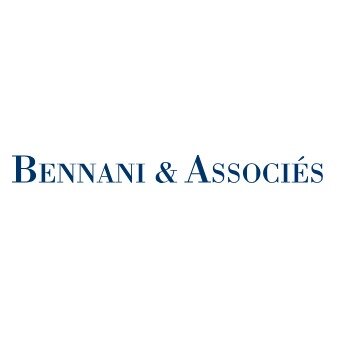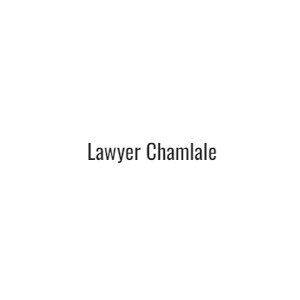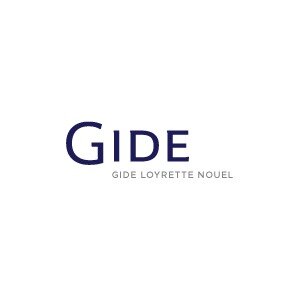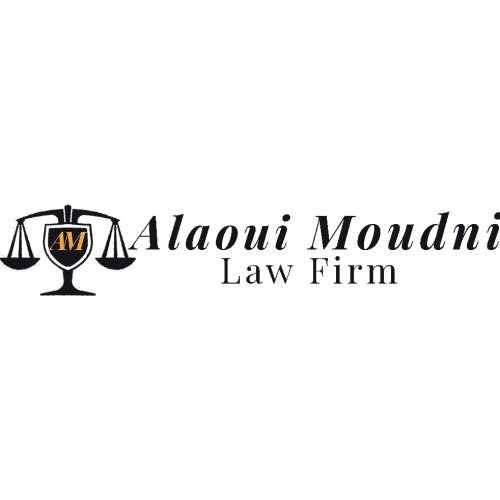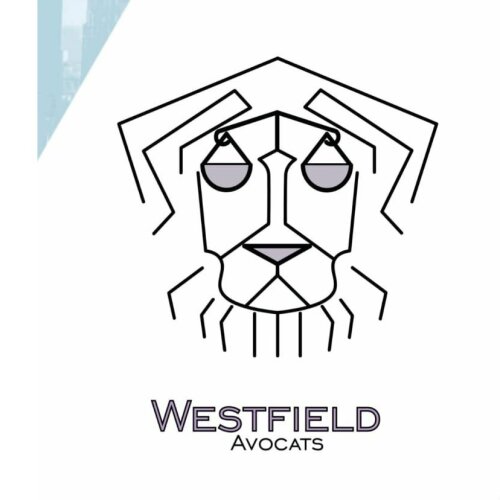Best Debt Capital Markets Lawyers in Casablanca
Share your needs with us, get contacted by law firms.
Free. Takes 2 min.
List of the best lawyers in Casablanca, Morocco
About Debt Capital Markets Law in Casablanca, Morocco
Debt Capital Markets (DCM) in Casablanca, Morocco, refer to the financial markets where companies, financial institutions, and even the State raise funds by issuing debt securities such as bonds and notes. Casablanca stands as Morocco’s leading financial center and plays a pivotal role in channeling investment and capital through its vibrant financial market ecosystem. DCM transactions in Casablanca typically involve both public issues offered to the general public and private placements directed at specific professional investors. The sector in Morocco is regulated to ensure financial stability, protect investor interests, and uphold the integrity of the markets. As Morocco continues to attract regional and international investors, understanding the DCM landscape and regulations is essential for issuers, investors, and intermediaries.
Why You May Need a Lawyer
Navigating the Debt Capital Markets in Casablanca involves complex regulations, contractual arrangements, and compliance requirements. You may need a lawyer if you are:
- Planning to issue bonds or other debt securities to raise funds for your company
- An international investor seeking to purchase Moroccan debt instruments
- A financial institution structuring or distributing DCM products
- Involved in large-scale transactions requiring due diligence and regulatory approvals
- Facing disputes or challenges from counterparties or regulatory authorities
- Unsure of disclosure requirements or issuer obligations under Moroccan law
- Needing advice on tax implications and cross-border aspects of DCM deals
- Seeking to understand compliance with anti-money laundering (AML) regulations and investor protection laws
A specialized DCM lawyer will help you navigate these complex legal landscapes, minimize risks, and ensure successful transactions.
Local Laws Overview
Debt Capital Markets activities in Casablanca are shaped by a combination of national laws, regulations, and regional decisions. Key aspects include:
- Regulatory Authorities: The Moroccan Capital Market Authority (Autorité Marocaine du Marché des Capitaux - AMMC) supervises and regulates DCM activities. The Casablanca Stock Exchange (Bourse de Casablanca) is the main platform for listed debt instruments.
- Securities Laws: The issuance, offering, and sale of debt securities are governed by Moroccan securities laws, which specify prospectus requirements, disclosure obligations, and rules around public offerings.
- Listing Requirements: Companies seeking to list bonds must comply with the Casablanca Stock Exchange regulations, including financial disclosures, corporate governance standards, and eligibility thresholds.
- Private Placements: For non-public offerings, less-strict requirements apply but issuers must still observe relevant regulatory approvals and investor protection standards.
- Cross-Border Transactions: Non-Moroccan entities and investors may face additional restrictions, reporting obligations, and regulatory scrutiny.
- Taxation: There are specific tax rules relating to interest, capital gains, and withholding tax on debt securities, relevant for both issuers and investors.
- Compliance: All actors must adhere to anti-money laundering rules, KYC procedures, and anti-fraud regulations set by Moroccan law.
Given the complexity and evolving nature of DCM regulation in Morocco, professional legal guidance is highly recommended.
Frequently Asked Questions
What are debt capital markets?
Debt capital markets are platforms where entities such as corporations or governments raise funds by issuing debt securities like bonds, typically with the promise of repaying principal and interest to investors.
What types of debt securities are commonly issued in Casablanca?
The most common are corporate bonds, government bonds (T-bonds), sukuk (Islamic bonds), and occasionally notes or debentures, issued either publicly or privately.
Who regulates the issuance of debt securities in Casablanca?
The Moroccan Capital Market Authority (AMMC) regulates the issuance, offering, and trading of debt securities in Casablanca and across Morocco.
Is it necessary to list a bond on the Casablanca Stock Exchange?
Listing is not mandatory for all bonds but is often required for larger or public issues to attract broad investor participation and meet transparency standards.
What are the disclosure requirements for issuing bonds in Morocco?
Issuers must prepare and publish a prospectus with detailed information about the company, financial situation, terms of the securities, and associated risks. The AMMC must approve the prospectus before a public offering.
Can foreign investors participate in Moroccan debt capital markets?
Yes, subject to compliance with foreign exchange and regulatory rules. Certain sectors or types of transactions may have additional restrictions or requirements for non-resident investors.
What legal risks are involved in DCM transactions?
Risks include non-compliance with regulatory requirements, inadequate disclosures, investor claims, market fluctuations, and potential enforcement actions by regulators.
How are disputes in DCM transactions resolved?
Disputes may be settled through negotiation, mediation, or litigation in Moroccan courts, and some agreements may specify arbitration, especially in cross-border deals.
Are Islamic finance structures available in the Moroccan DCM?
Yes, sukuk and other Sharia-compliant structures are increasingly available and regulated as part of Morocco’s commitment to diversifying its capital markets.
Do I need a lawyer to issue debt securities in Casablanca?
While not mandatory, legal representation is strongly advised due to the complexity of regulatory compliance, documentation, negotiation, and risk management in DCM transactions.
Additional Resources
If you are seeking further information or guidance on Debt Capital Markets in Casablanca, the following resources may be helpful:
- Autorité Marocaine du Marché des Capitaux (AMMC): Main regulator overseeing capital market activities, offering publications and guidelines for issuers and investors.
- Casablanca Stock Exchange (Bourse de Casablanca): Provides rules, regulations, and information on bond listings and market data.
- Ministry of Economy and Finance: Responsible for public debt issuance, policy updates, and investor information.
- Professional Advisors: Law firms and financial advisors specializing in Moroccan capital markets and international finance.
- Chamber of Commerce, Industry and Services of Casablanca-Settat: Resource for local business support and networking on financial market matters.
Next Steps
If you are considering participation in the Debt Capital Markets in Casablanca, or have legal questions regarding regulations, deals, or compliance, consider the following steps:
- Clearly define your objectives and expectations for DCM activities
- Gather all relevant documents, such as financial statements and business plans
- Contact a lawyer or law firm specializing in debt capital markets and securities law in Casablanca
- Schedule a consultation to discuss your specific needs and concerns
- Review potential legal strategies and compliance obligations with your lawyer
- Maintain regular communication with your legal adviser as your transaction progresses
Seeking professional legal guidance will help you ensure that your Debt Capital Markets activities comply with local laws, maximize your opportunities, and reduce potential risks in Casablanca, Morocco.
Lawzana helps you find the best lawyers and law firms in Casablanca through a curated and pre-screened list of qualified legal professionals. Our platform offers rankings and detailed profiles of attorneys and law firms, allowing you to compare based on practice areas, including Debt Capital Markets, experience, and client feedback.
Each profile includes a description of the firm's areas of practice, client reviews, team members and partners, year of establishment, spoken languages, office locations, contact information, social media presence, and any published articles or resources. Most firms on our platform speak English and are experienced in both local and international legal matters.
Get a quote from top-rated law firms in Casablanca, Morocco — quickly, securely, and without unnecessary hassle.
Disclaimer:
The information provided on this page is for general informational purposes only and does not constitute legal advice. While we strive to ensure the accuracy and relevance of the content, legal information may change over time, and interpretations of the law can vary. You should always consult with a qualified legal professional for advice specific to your situation.
We disclaim all liability for actions taken or not taken based on the content of this page. If you believe any information is incorrect or outdated, please contact us, and we will review and update it where appropriate.




